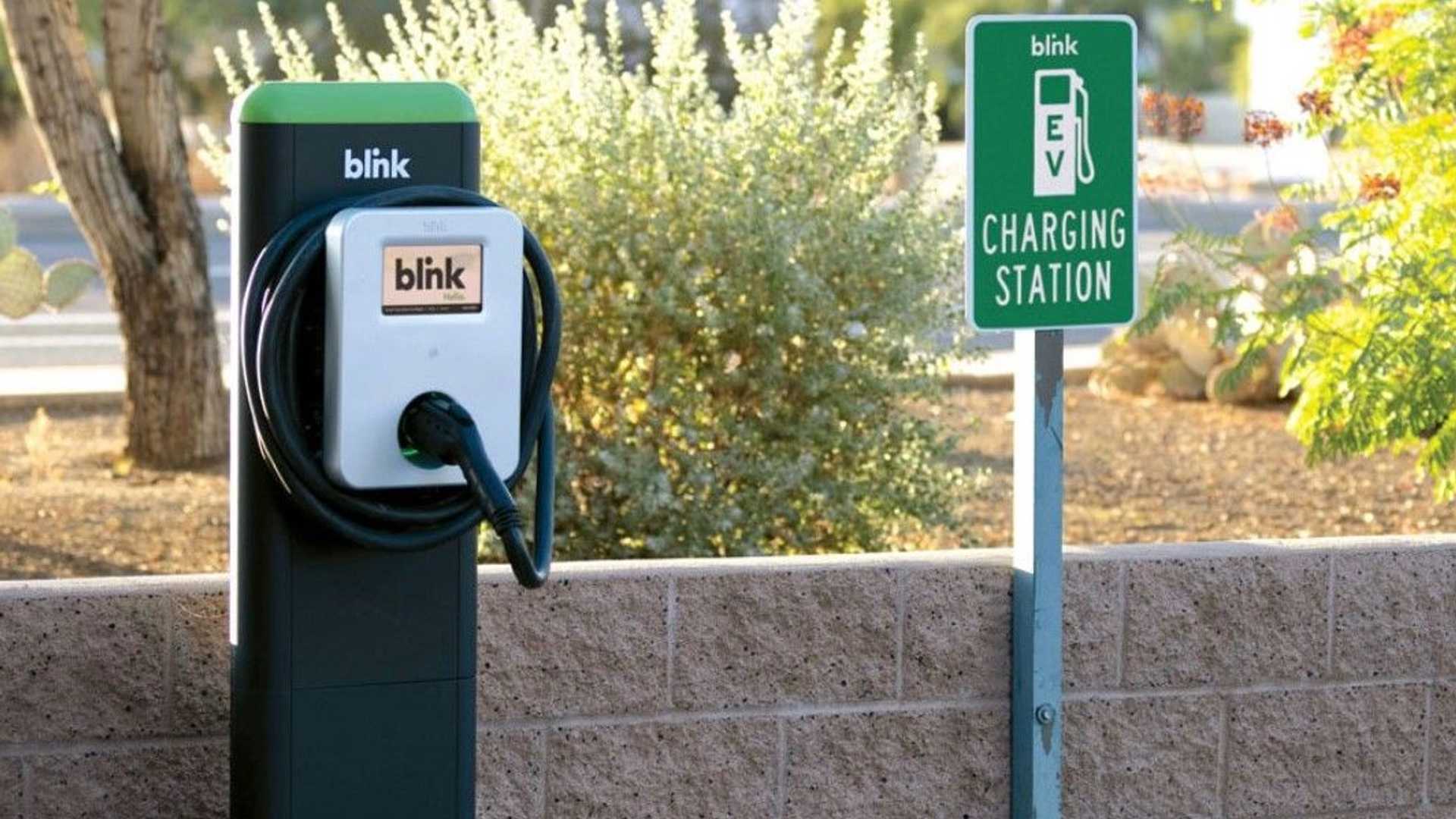
Blink Charging was awarded an indefinite-delivery/indefinite-quantity (IDIQ) contract with the United States Postal Service (USPS) to provide up to 41,500 EV chargers as it transitions its delivery fleet to electric vehicles.
The announcement comes only three months after the USPS declared that it will phase out buying new internal combustion delivery trucks in four years and purchase only electric vehicles after 2026.

Last year, the USPS announced it was doubling its initial order for electric delivery trucks with Oshkosh Defense costing $2.98 billion for a total of 50,000 units.
Then, just a few weeks ago, we learned that Ford had also secured a contract to provide the USPS with 9,250 E-Transit Vans.
However, the agency will also purchase 9,250 Ram ProMaster vans in the next two years to fill the urgent need for new vehicles now. It will then buy at least 66,000 fully electric vehicles through 2028.

The Blink contract is an enormous win for the network but it won't be the exclusive supplier of charging equipment to the USPS. The US Postal Service announced that it will be buying equipment from two additional suppliers: Rexel Energy Solutions and Siemens, and the total cost of the contracts is $260 million.
Blink has a variety of different EV charging options and for the USPS it will be providing its Series 7 dual-port charger that can supply up to 80 amps (19.2 kW) of power from each port.
Blink Mobile Charger
Nearly three years ago we reported that Blink was launching a mobile charging solution aimed primarily at roadside assistance companies. The freestanding charger was basically a gasoline-powered generator with an integrated Blink level 2 charger attached. The unit could deliver 40-amps and charge an EV at up to 9.6 kW.
Last week, Blink introduced its second-generation gasoline-powered mobile charger that is smaller and considerably lighter (230 lbs compared to 354 lbs), which makes it easier to move around when needed. It is, however, less powerful than the previous model and can now deliver only 32-amps, which is 7.7 kW. Pricing hasn't been revealed as of yet.


Blink Mobile Charger Gen 1 (Left) compared to Gen 2 (Right)
Blink advertises: "The mobile charger can deliver up to 1 mile of charge per minute", but at 7.7 kW, the vehicle would need to achieve nearly 8 miles per kWh to add a mile a minute, which is not even close to what any production car can claim. However, electric motorcycles can achieve that, and even better, so perhaps Blink was referring to electric motorcycle charging.
The charger can run for 5 hours continuously without filling its 6.1-gallon gas tank at its peak delivery output of 32-amps. It comes with a 23-foot cable and J1772 connector so it can charge any electric vehicle sold in North America including Tesla vehicles with a J1772 to Tesla adapter.
The unit can either remain non-networked or be networked via Wi-Fi. The non-networked configuration allows roadside assistance companies without authorization and the networked configuration allows EV drivers to pay to charge from it through their Blink account and pay for the electricity received.
While using a gasoline generator isn't the ideal setup for mobile EV charging, there's definitely a need for this type of equipment. Personally, I'd prefer to see battery-powered mobile chargers and I believe that will be the future of mobile charging. However, I can definitely understand why roadside assistance vehicles might prefer this solution, at least until battery-powered units like these are smaller, lighter, and less expensive.
Thoughts? Leave them in the comment section below for discussion.








